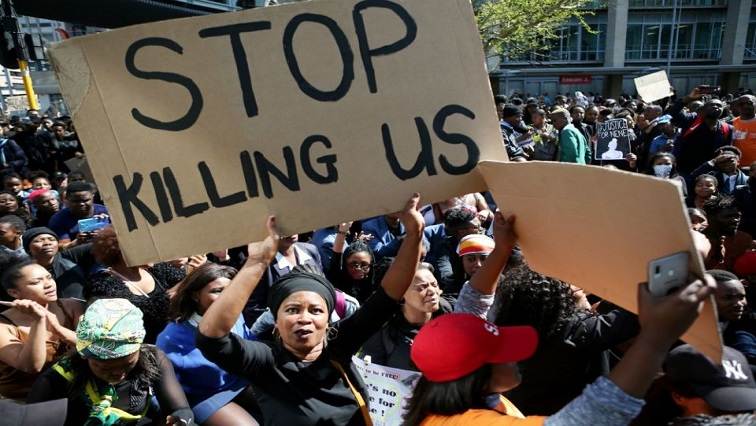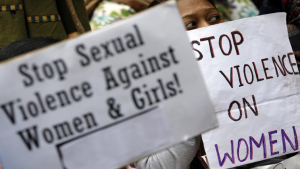#GBVdata SAPS presentation showing conceptual on combating GBV @drtlaleng @javubaloyi pic.twitter.com/chSjY2Sjon
— Commission for Gender Equality South Africa (@CGE_ZA) August 28, 2020
Online Gender-based violence is real violence.
Joined the Deputy Minister in @CommsZA – @Pinky_Kekana1, Acting CEO @FPB_ZA Abongile Mashele and Commisoner for @CGE_ZA – @drtlaleng.
Engagement on laws, trends and solutions. pic.twitter.com/EQeh2ohjKl
— Nhlanhla Sizani (@Nhlanhla_Sizani) August 28, 2020
Concern was raised that there’s no capacity for effective stats collection.
Experts on gender issues believe that GBV increased during the lockdown, but statistics coming out of government departments and non-governmental organisations are not giving a clear picture of the situation.
In the webinar, the Gender Commission raised concerns that various government departments were quoting different statistics, some claiming that GBV went down while others said it had spiked.
The commission Chairperson Tamara Mathebula says the problem is capacity.
“There were reports of increased GBV; there were reports of increased domestic violence in South Africa. There has been an absence of institutional capacity to generate relevant and accurate statistics of gender-based violence and this absence of institutional capacity has made things worse in terms of making sure we sit down and plan as a country on how to effectively respond.”
In a report the commission has put together on GBV under lockdown, it recommended a review of the way in which statistics are recorded and classified.
Commissioner Dibeela Mothupi says GBV shouldn’t be bundled with other crimes such as assault as is currently the case.
“Therefore, there is a need for GBV to be clearly separated from other assault cases. It’s not clear if South African police cover incidents of human trafficking. Therefore, the need arises for reporting to include human trafficking as well.”
She has called for a centralised database that will ensure that the data is suitably classified and accessible.
#GBVdata SAPS report on detection on GBV and crime rates @drtlaleng @javubaloyi pic.twitter.com/KbolkdItFv
— Commission for Gender Equality South Africa (@CGE_ZA) August 28, 2020
Ester Maluleke from the Department of Women, Youth and People with Disabilities advocated for a prevalence study to give a clear picture of the GBV problem. She says her department has worked on a strategy that focuses on prevention.
“As a country, when we moved to lockdown Level 3, we began to see cases escalating, especially of femicide, let alone other types of violence. At the last count when the president made an announcement at some point, he indicated that just in June more than 20 women were killed.”
Maluleke has also highlighted that because GBV reporting was not classified as an essential service, women found it difficult to report their cases, especially those in rural areas.






